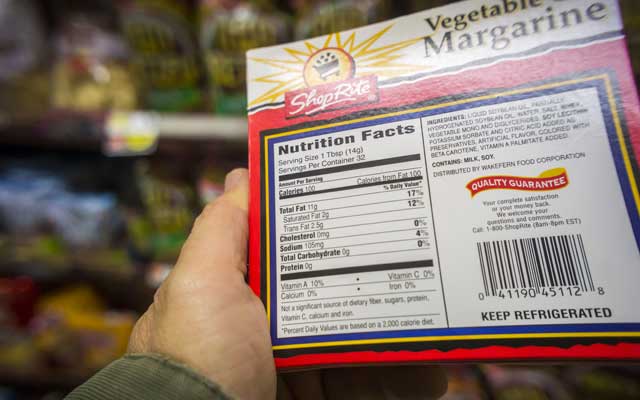The Food and Drug Administration (FDA) is taking the first step to ban trans fat. It has made a preliminary determination that partially hydrogenated oils (PHOs), which are the major dietary source of trans fat in processed food, are not “generally recognized as safe.” The agency is seeking public comments before making a final determination.
According to the FDA:
“If FDA determines that PHOs are not GRAS [“generally recognized as safe”], it could, in effect, mean the end of artificial, industrially-produced trans fat in foods,” says Dennis M. Keefe, Ph.D., director of FDA’s Office of Food Additive Safety.
Only artificial trans fat would be banned, not naturally occurring trans fat.
The first paragraph in the FDA’s announcement regarding this development states:
More than [a] decade ago, a sea change began in the American diet, with consumers starting to avoid foods with trans fat and companies responding by reducing the amount of trans fat in their products.
So, what’s the problem?
The market and consumers responded to health concerns regarding trans fat. According to the FDA, consumption of PHOs “has declined dramatically from 4.6 grams per day in 2003 to about 1 gram per day in 2012.” Thus, even assuming that reducing the consumption of trans fat is a legitimate public health goal, a reduction in trans fat is being achieved already.
Consumers can make informed and voluntary choices as to whether to consume trans fats. The FDA also already mandates trans fat nutritional labeling. This ban is a solution in search of a problem. Yet the FDA is taking this extreme action when alternatives are proving to be successful.
The ban could mean higher food costs as manufacturers and restaurants seek alternatives to using trans fats. Ironically, saturated fat could be a widely used replacement to trans fat—trans fat was supposed to be a “healthy” alternative to saturated fat. The ban could also affect other important aspects of our food, since trans fat helps with taste and extending the shelf life of food.
This is a ground-breaking action. The FDA is not trying to ban an ingredient that is unreasonably dangerous. A person doesn’t eat a corn chip with trans fat and then die—just like someone eating a corn chip with salt doesn’t immediately die. As with anything, the dose makes the poison. People can eat trans fat throughout their lives and be fine. Further, even if they eat so much trans fat that they in fact do have greater health risks, this is their personal and informed choice.
This proposed trans fat ban is precisely the type of precedent that would allow the FDA to try to eliminate ingredients that are safe but possibly not as healthy, in the government’s view, as other options.
The FDA is trying to control what people eat. This isn’t even about behavior modification anymore, since the public has already modified its behavior in a way that meets the government’s wishes. The FDA is now playing the role of nutrition activist and ignoring the most important issue: the freedom of Americans.































